A Christian Genocide on the World's Most Christian Continent: Searching for Truth Amid the Bloodshed
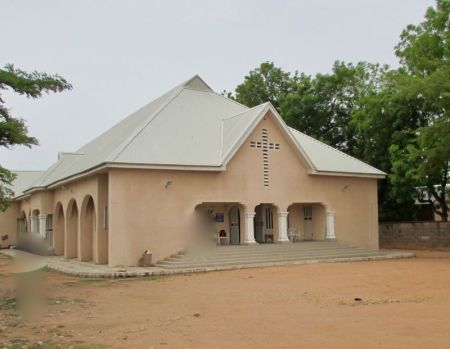
Thousands of Christians have been killed in the past year alone. Families have lost their loved ones, their churches, their houses, and everything they have in an instant.
Some are calling it an all-out genocide in the most Christian country in the world's most Christian continent in terms of numbers.
The truth of what is happening in the Fulani conflict in Nigeria remains muddled by politics, misreporting, and misinformation. But one group is saying that there is deliberate deception taking place, one that seeks to portray the Fulani attackers simply as "herdsmen," and the conflict as strictly a clash between farmers and cattle herders.
The truth, according to the International Society for Civil Liberties & the Rule of Law, a nonprofit, nongovernment organization headquartered in Nigeria, is that radical Islamists have taken over the Fulani, spreading jihad by deliberately slaughtering Christians and burning their churches.
At the same time, they are said to be using the narrative of agriculture as a cover to claim that the clashes are of a nonreligious nature.
The Nigerian government, and much of reporting in Western media, takes that line of thinking, and refuses to characterize the ongoing slaughter by the Islamic Fulani against the largely Christian farmers as a religious war.
Emeka Umeagbalasi, Board Chairman of Intersociety, told The Christian Post in a series of phone and email interviews on Aug. 2 that there is strong evidence, when analyzing the patterns and trends, to suggest that the conflict is far from just about cattle grazing, but is a deliberate jihad aimed at rooting out Christianity.
Still, there are a number of different actors in the crisis on Africa's most populous nation, which is roughly divided in half between its Muslim and Christian inhabitants.
Organizations representing Fulani herdsmen are distancing themselves from the radicals carrying out violence in their name. Several reports have documented that the attackers are using AK-47 rifles and sophisticated weapons to kill as many people as possible, suggesting they are being funded and supplied by others.
So who precisely is killing thousands of Christians, converting churches to mosques, and displacing multitudes of families, leaving them with nothing?
Families Losing Everything
Everything they have, they have lost in a moment. Their houses, churches, communities, any stability they might have known, even their loved ones and relatives. And then they are forced to run for their lives.
That is the reality for so many Christian families, according to Open Doors USA, a leading persecution watchdog group that has been assisting victims of Fulani violence in Nigeria.
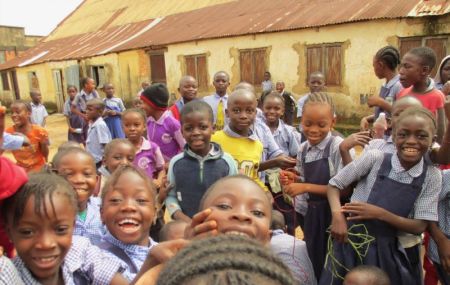
Chris Summers, senior writer at the relief group, told CP in an August 3 phone interview that such stories are happening all over rural towns in Nigeria's Middle Belt.
"Just the idea of being trapped with your family in some of these villages and knowing that your village is about to get raided, and essentially having to run, leave everything behind, and knowing that you are about to become an internally displaced person," he said of the circumstances that really stand out amid the suffering.
"You're not sure what you're going to do, because your entire village is forced to leave, so any kind of community you had is stripped away. Your church is gone, which for many of these Christians in the Middle Belt, their church is the center of their community and the center of their social structure. So the church is gone, it is burned, and they may not ever see it again."
Summers continued:
"From one moment living in a town, and in the next moment you have nothing. And not only do you have nothing, but all of your friends and neighbors that have not been killed, they also have nothing."
Open Doors said that it delivered aid to those in need following large raids near Jos in June, where over 3,000 Christians were displaced, and over 200 were slaughtered.
A worker with the watchdog group said that the survivors were left in a "pathetic situation."
"Life has become a living hell for them. They have lost loved ones, houses, and all they labored for in the twinkling of an eye. The agony they are going through is hard to describe," the worker, Kerrie, said at the time.
"We saw people who were still in a haze over what they have just gone through. Children were crying hysterically, perhaps because of hunger or perhaps because of hunger and the trauma."
Summers explained that Open Doors, which has been active in Nigeria for decades, was able to help with critical relief in Jos and other areas by assisting local churches in setting up informal camps for the people.
"We help the church provide discipleship tools and Bibles to churches that may have been burned down, or it can be more immediate and practical relief aid," he explained, such as assisting children and families that have experienced traumatic abuse.
The Scope of the Slaughter
With the attacks widespread and ongoing, different numbers have emerged as to how many Christians have been killed by the Fulani this year, and in preceding years.
Umeagbalasi, who has authored advocacy publications, spearheaded campaigns and been awarded numerous human rights certificates and merit awards, said that according to Intersociety's latest investigative check on July 11, as many as 1,870 rural Christians have been killed by the Fulani since January 2018.
The killings, many of which have taken place in the old Middle Belt region of northern Nigeria, have also forced over 1.7 million people to flee their homes following years of violence and threats by various Islamic jihadists, including Boko Haram.
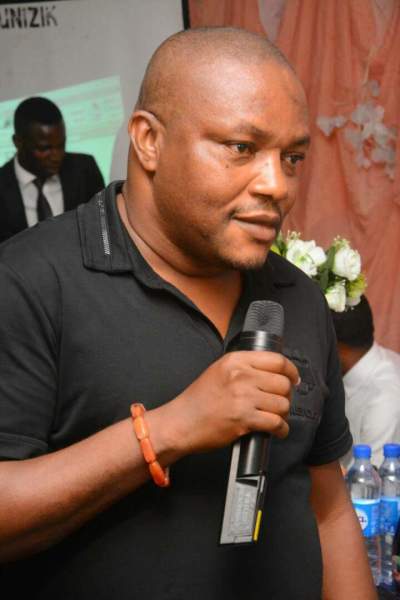
Some of the worst Fulani attacks included the raids on villages in Taraba and Adamawa states on July 8 and 9, where no less than 100 Christians were killed, with their homes and churches burnt to ashes.
An even more devastating raid happened in June on 11 villages in Plateau State, where jihadists hacked to death 250 rural Christians, with 238 of their bodies recovered and buried in mass graves.
In terms of statistics, Umeagbalasi explained that they are "easily and unassailably generated through circumstantial evidence, including crime scenes; survivors, victims' relatives and eyewitnesses' accounts; documentations done by local branches of the Christian Association of Nigeria; media; human rights groups; activists; intergovernmental organizations, and victims' indigenous associations."
Intersociety, which says it has consistently followed, documented and advocated against the killings, explained that it has been monitoring casualty rates for the past 10 years, especially since 2015.
The statistics Umeagbalasi shared break down the killings of the past few years, and highlight the most violent periods. No fewer than 1,300 Christians were killed between February and December 2016, with another 1,700 Christian deaths occurring in 2017. All in, all, he says that since June 2015, over 5,400 Christians have been killed in radical Fulani attacks — and this is not including deaths at the hands of Boko Haram and other factions.
The impact of the Fulani has been examined in a number of major studies. The 2017 Global Terrorism Index reported that between 2012 and 2016, when the attacks where less frequent, Fulani herdsmen still killed over 2,500 people in Nigeria.
The Index points out that it is difficult to determine whether Fulani extremists operate as a single nonstate actor and are working together like a typical terrorist organization, or whether there are different Fulani groups independent from one another but fueled by the same cause.
Most recently, The International Crisis Group released its own research on July 26, finding that over 1,300 people were killed in attacks this year in Benue, Plateau, Adamawa, Nasarawa and Taraba states.
Although labeling it as a "farmer-herder conflict," ICG positioned that the attacks have become Nigeria's gravest security challenge, claiming more lives than the Boko Haram insurgency. The report blamed the federal government for failing to protect citizens and to prosecute attackers, warning that the nation's stability is being undermined.
Such numbers are conservative, however. Other groups, such as the Christian Association of Nigeria and church denominational heads in Plateau State, claimed at the end of June that over 6,000 people, mostly women, children, and the elderly, have been killed in night raids by the Fulani in 2018.
A press release said that the 6,000 deaths have been recorded in the northern and Middle Belt states of Benue, Plateau, Taraba, Adamawa, Kaduna, Kwara, Borno, Zamfara, and others.
"What is happening in Plateau state and other select states in Nigeria is pure genocide and must be stopped immediately," read a joint statement at the time.
The Christian leaders called the Nigerian government "to stop this senseless and blood shedding in the land and avoid a state of complete anarchy where the people are forced to defend themselves."
Bosun Emmanuel, the secretary of the National Christian Elders Forum, issued one of the strongest warnings at a conference of Catholic Men's Guild in Lagos, also in June.
"Realistically speaking, Christianity is on the brink of extinction in Nigeria. The ascendancy of Sharia ideology in Nigeria rings the death toll for the Nigerian Church," Emmanuel said.
"In 2018, we can say in 25 years from now, we are facing the risk of being the last Christians in Nigeria. Therefore, Christians should be in the frontline of defending democracy in Nigeria," he added.
Why Are the Fulani Doing This?
According to Umeagbalasi, a crucial understanding is missing in media reporting about the crisis.
Namely that the Fulani have been taken over by a radical jihadist element which is very much intent on burning down churches, killing Christians, and driving them out en masse.
"How many Muslim farmers are being killed by Fulani herdsmen? How many Muslim homes have been destroyed or burned? The answer is in the negative. It has nothing to do with herdsmen-farmer clashes. It is false," he said of the latter argument.
"We don't like to use the [term] 'Fulani herdsmen', we like to use "Fulani jihadists," who are under the guise of herdsmen."
The Intersociety board chairman explained that when it comes to violence, to how many Christians have been killed in comparison to Muslims, "there is no proportionality."
"How many times have you heard or read that the indigenous Christian communities in Nigeria started the violence — where they have been looking for Fulani people and started killing Fulani people?" he asked rhetorically.
He said that when Christians are killed, reprisals from their communities are rare, and cannot be compared to what is being inflicted upon them.
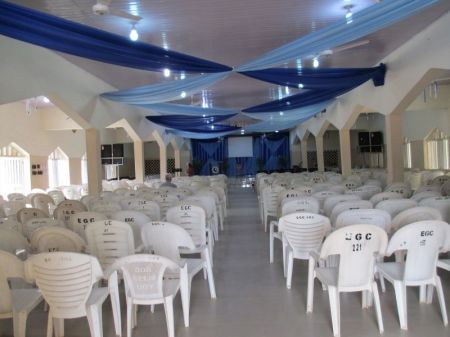
"Killing of Christians is everywhere. Over 500 churches have been lost by Fulani jihadists since 2011 in Benue state alone. There is no proportionality, there is no balance of terror, there is no balance in violence," he continued.
"It is the case of a group hiding under cattle herding to unleash violence on innocent Christian indigenous communities. They destroy the farmlands and convert their churches to mosques."
He argued that the "cardinal intent of the Fulani jihadists and their patrons is to drive out all Christians, not only from the Middle Belt of Nigeria, but possibly from all parts of Nigeria's rain forest regions. The jihadists have in memory what happened to the ancient Christians of Turkey and North Africa, and they are bent on replicating the same in Nigeria."
Umeagbalasi said that such jihadist take-overs have happened in the past as well, such as in the case of Boko Haram, the more infamous terror group known for raiding towns, kidnapping schoolgirls, and bombing government buildings and churches.
He explained that Boko Haram began as a "rag-tag street urchin group" back in 2002, but they were also "infiltrated by fundamentalist Islamists in northern Nigeria's religious, political and security establishments."
One difference is that in their attacks on the government and anyone who stands in their way, Boko Haram has gone on to attack mosques and kill scores of Muslims, along with many Christians.
Umeagbalasi pointed out that the Fulani have so far been attacking Christians exclusively, and said that there have been numerous instances where they have renamed rural Christian lands with Arabic or Islamic names.
He noted that it is true that Fulani herdsmen have lived long in the primitive pastoral realities of cattle herding. From time to time over the years this has led to violence against farmers, with farmlands and crops being burned down, while the herders have accused the farmers of killing their cattle.
He argued that times have changed significantly, however, and that the Fulani need not rely on ancient cattle herding methods any longer.
Looking at the largest cattle grazing nations in the world today, Nigeria is not even in the top 10, he pointed out.
"When you look at the methodology of cattle producing nations, you find that they are using the sedentary method of animal husbandry," he said, referring to the method which allows herders to raise their cattle in one place rather than moving them back and forth across the land.
"Science has revolutionized everything through the act of irrigation," he positioned, which is a process that grows agricultural crops by applying controlled amounts of water to dry areas.
"In this country, out of 930,000 square kilometers (359,000 square miles) of the landmass in Nigeria, over 70 percent of them are located in the north. Which means that there is enough land in the north to be acquired, and use the science and technology to turn the issue of animal husbandry around. In the north, irrigation technology is now very common."
He said that there is little stopping the Fulani from abolishing primitive animal husbandry and replacing it with the globally compatible sedentary method.
The reason why they don't switch over, he insisted, is because their goal "is to continue this kind of crude methodology, so that they can hide under it to propagate their Islamization project."
"They don't want to do that, because they want to Islamacize the whole place, they want to hide under agri-jihadism," he claimed.
Referring back to the news reports, Umeagbalasi accused much of Nigeria's traditional media of not reporting on the crisis accurately. He added that foreign correspondents who may want to come to investigate the situation are fed the Nigerian government's narrative.
"If you want to come to Nigeria to investigate what is happening, your port of call is Lagos," he noted, where journalists meet media representatives who show them what the government wants to be shown, and talk to people who take the government's position.
"The lopsided architecture of media ownership and practice in the country may also be a major contributing factor to unfavorable western media coverage of persecution of Christians in Nigeria," he explained.
Is Climate Change Really to Blame?
Another consistent narrative that has been pushed by some studies, reports, and government officials, has been that that climate change can be partly blamed for what is happening.
The narrative positions that climate change has been leading to desertification, drought and deforestation, forcing cattle herders to seek greener pastures and expand their grazing lands, which leads to the clashes and violence.
Some major Christian leaders who have spoken out against the Fulani attacks, such as Justin Welby, the archbishop of Canterbury, have suggested that international efforts need to tackle the harmful effects of climate change, which he accused of "exacerbating ancient rivalries."
Umeagbalasi said that he strongly disagrees with the Church of England leader's thoughts on the issue, however.
"The climate change mantra is the newest among over a dozen false excuses or lies cooked up by the central government of Nigeria to escape responsibility or divert world attention over the butchery. The climate change theorists have again failed just as they failed in all their previous concoctions," he argued.
"The raging anti-Christian violence in Nigeria is premeditated and has nothing whatsoever to do with the so-called 'climate change.' They want to use the cover of pastoralist cattle herding to Islamize Nigeria's rain forest regions," he repeated, insisting that the globally popular sedentary grazing and scientific animal husbandry method is available for livestock management.
"They are chronically being economical with the truth," he added.
Umeagbalasi argued that Welby's meetings with Nigerian President Muhammadu Buhari have hardly been a positive development, given that the latter is "widely accused of either not doing enough to protect Christians, or being complicit in the butchery."
He accused Buhari's government of using climate change as just another excuse in its search "for an escape route to escape responsibility and accountability, to escape the attention of the international community."
He said that in 2018, Buhari's federal government provided as much as N179 Billion, or close to $500 million USD, to the Fulani to "expand their agro-jihadist operations" under the guise of "national grazing routes and ranching." At the same time, it gave only N10 billion, or $27.7 million USD, for farmers to rebuild their homes, and for victims to be rehabilitated.
"This government wants to cunningly seize or procure communal Christian lands in the Middle Belt and the old eastern region and hand them over to the MACBAN (Miyatti Allah Cattle Breeders Association of Nigeria)-led Fulani jihadists in the guise of 'national grazing and ranching' policy, after which the areas shall be renamed and Islamized with emirate councils and Islamic caliphates put in place for eternity," he warned.
The Fulani Response; The Government Response
In some respects, the statements from various organizations representing the Fulani have also claimed that the gangs carrying out the attacks are radicals that are masquerading as herders.
Sa'idu Baso, a senior Fulani leader in eastern Nigeria, told BBC News back in May that the attacks are being carried out by militants.
"It is not fair to blame us for every incident because in most cases we are the victims," Baso claimed, stating that herdsmen have had their cattle stolen by bandits.
"Nigerian authorities need to do more to protect our people and their cattle," he added.
Alhaji Bello Abdullahi Bodejo, the national chairman of a Fulani socio-cultural association, Miyetti Allah Kautal Hore, has insisted that those carrying AK-47 rifles are not Fulani.
"First and foremost I am condemning the killings, we Fulani socio-cultural association we are not part of any killing, we are not supporting any killing not only in Benue, we are not supporting any killing in Nigeria as a whole. If you see anybody carrying AK-47, maybe that person is an armed robber from another group or bandit or whatever you can call it wearing Fulani cloth," Bodejo stated in January.
In June, following the killing of at least 100 citizens in Plateau state, the Miyetti Allah Cattle Breeders Association of Nigeria, mentioned by Umeagbalasi, claimed that an earlier statement taking responsibility for the killings did not originate from its association.
"We don't encourage violence; we don't accept it, support it, or condone it in any way and by whosoever. We don't like violence," said the association's national secretary, Usman Baba-Ngelzarma, according to Pulse Nigeria.
As such, the central government of Nigeria has faced accusations from many different sides — from the Christian associations, persecution watchdog groups, independent international reports, and some of the Fulani leaders, stating that it is either complicit, or failing in its duties to protect the people from harm.
For his part, Buhari has strongly denied that his administration is not taking the violence seriously enough, or that he is afraid to speak out because he is of a Fulani background himself.
In June, he claimed that he should not be blamed just because he "looks like one of them," referring to the Fulani.
''... The present herder, I am told, carries AK-47 and people are even blaming me for not talking to them because maybe (they say) I look like one of them. There is some injustice in these aspersions," Buhari said in a statement at the time, as reported by CNN.
"It is noteworthy that many Nigerians still acknowledge that despite the security challenges, this administration has made notable successes in the security sector," he added.
The president has continuously insisted that the military has been successfully dealing with Boko Haram, driving it out of the towns it once occupied, and hampering the terror group's operations.
What is more, Buhari has claimed that the latest attacks are an "evil design" meant to pit Nigerians against each other.
"Repeated acts of mass killings and destruction in parts of the country and Benue State in particular, point to the evil design of enemies of peace and unity who have desperately been trying to bring the country to this sorry point: a brother killing brother, a neighbor killing a neighbor and a community attacking and killing members of another community," the president said in April through his assistant, Garba Shehu.
Though he did not portray the killers as Islamic radicals, he said that those taking life are "hideously evil people who have no iota of respect for humanity, decency and civilization."
What the West, Christians Can Do
Umeagbalasi said that the scaling down of the killings at the end of July and the start of August "most likely arose as a result of rising western concerns and the attention the butchery is beginning to receive from western media and political circles."
He pointed to various efforts, such as a recent debate at the House of Lords in the U.K. on the crisis in Nigeria, for playing a part.
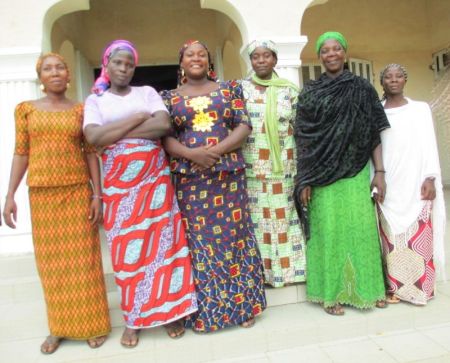
He called on the United Nations Security Council to pass a resolution ordering a comprehensive investigation into the killings as a way to step up the pressure and focus.
"[The] Western world, including U.K., EU and USA can tie further development assistance and sale of military hardware to Nigeria to stoppage of the killings and bringing [down the] book on those behind them," he added.
"The perpetrators can also be prosecuted in foreign courts, such as U.K. criminal courts, for crimes against humanity."
The Intersociety chairman added that Christian leaders, especially those in the western world, can add their voices to government representatives and human rights groups and push diplomatic sanctions against the Nigerian government and its political actors "until the killings [are] stopped and discontinued."
Summers of Open Doors pointed to U.S. President Donald Trump's meeting with Buhari at the White House in April, where Trump touched upon the killings of Christians, by urging for such matters to continue being discussed by the two governments.
"We would encourage (Americans) to contact their local government representative and ask those questions that need to be asked. We don't want the religious freedom question to be pushed to the back," and behind talk on trade and foreign relations, he added.
"The biggest thing is to pray. We are praying for the victims, and for the victims' families in these most recent attacks, as well as the attacks that have taken the lives of Christians in Nigeria's Middle Belt," he said.
"We are praying for God to intervene, that He would bring an end to the violence, and even work in the heart of these militants" for change, he continued.
"We are praying for peace and for Christians in Nigeria to have a supernatural peace and be able to forgive."
Summers said that one important aspect is "letting yourself find out about these things, and letting it break your heart a little bit."
"The Christians in Nigeria are part of the same family of God that you would go to church with, they are worshiping the same God that we do. Whenever they are under attack, or whenever they are in mourning, we are given the opportunity to mourn with them."





















